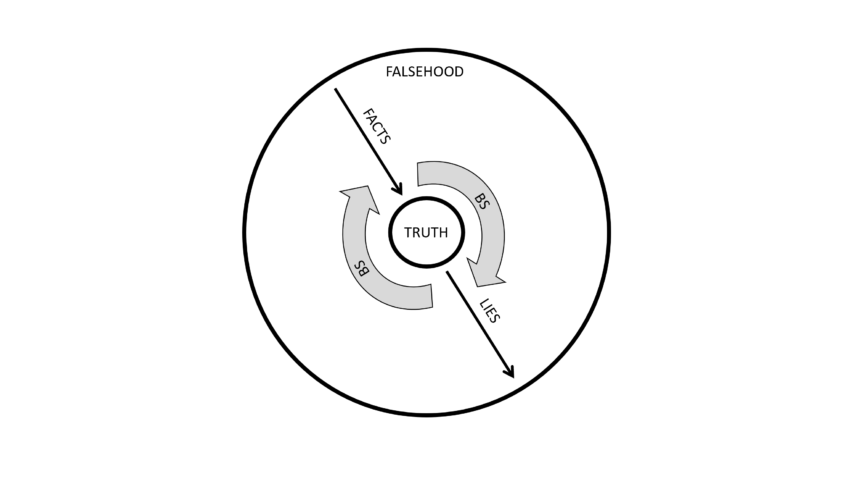Paul Sellers
Published 26 Aug 2022I am always surprised how few woodworkers have made a simple three-legged stool, and every woodworker should make at least one. I developed this for benchwork instruction, which makes the whole methodology different and unique.
Whether you are a seasoned woodworker or a raw beginner, there is so much to learn about hand tools, wood, technique, and grain structure in this simple stool. It’s just a few hours of very pleasant woodworking and it can be completed with just a handful of common woodworking tools.
I hope you enjoy making yours.
——————
(more…)
February 25, 2023
Making a Simple Stool | Paul Sellers
QotD: Feudalism versus “Manorialism”
… the economic system in much of medieval Europe is better understood under this term, manorialism, rather than “feudalism”. Feudalism, as a term, has been generally going out of style among medievalists for a long time, but it is especially inapt here. In a lot of popular discourse (and high school classrooms), feudalism gets used as a catch-all to mean both the political relationships between aristocrats and other aristocrats, and the economic relationships between peasants and aristocrats, but these were very different relationships. Peasants did not have fiefs, they did not enter into vassalage agreements (the feodum of feudalism). Thus in practice my impression is that the experts in medieval European economics and politics tend to eschew “feudalism” as an unhelpful term, preferring “manoralism” to describe the economic system (including the political subordination of the peasantry) and “vassalage” to describe the system of aristocratic political relationships.
Bret Devereaux, “Collections: Bread, How Did They Make It? Part IV: Markets, Merchants and the Tax Man”, A Collection of Unmitigated Pedantry, 2020-08-21.
February 24, 2023
“… they are all weedy, weird sylphs who are essentially un-people, without any wisdom or sense”
Elizabeth Nickson on the current cohort of raised-in-a-vat, cloned “leaders” of most of the western world:
Easily the most destructive cohort in the culture is the financially secure, semi-educated female on the cultural left. She reads nothing but literary fiction, is a book and knitting club member and knows absolutely nothing about the real world. But she is “bold” and “powerful” and never shuts up. Her views are confirmed, amplified and imposed by corporate media, for whom she is the aspirational shopper from whom all wealth flows.
It is the opposite of a virtuous circle. Ignorant protected women of all colors are courted by corporations because she makes 90% of buying decisions (and less fortunate women emulate her). Corporations force the press to slavishly pander to her every stupid whim and deep feel of the month so their adverts work like charms.
All the above leaders [Jacinda, Trudeau, Nicola, Rishi, and Macron] are manufactured in some MKULTRA facility to appeal to her ignorance, her prejudices, her over-weening self-regard. With the exception of the vegetable in the White House, they are all weedy, weird sylphs who are essentially un-people, without any wisdom or sense. They’ve lived their lives in classrooms and meeting rooms. They serve as pretty, platitudinous ciphers on which to project a profound political ignorance and emotional immaturity.
Our girl, for she has never grown up, has abandoned adult responsibility to luxuriate in narcissism.
She is ruthlessly used by the vicious communist left (as described below) and she has no idea who or what they are. She is the stupidest person on the planet.
And Michelle Obama? If you are thinking of running, think again. Because the hell we will unleash on your ignorant self will make Jacinda tremble with PTSD.
Let someone far less impassioned and far more knowledgeable than me describe Ardern’s humiliating failures below. The damage she caused to her people, to her party, to her country’s economy was as titanic as her ego. Every single other leader listed in the head of this piece is following the same dictated-from-above public policy initiatives. Their fate and that of their citizenry will be the same.
By their fruits ye shall know them.
If you want to know more about the rise and fall of Justin Trudeau’s New Zealand counterpart, Elizabeth’s post includes an extensive discussion of Jacinda Ardern’s career from Dr Muriel Newman of the New Zealand Centre for Political Research.
Up Close and Personal – Mountain Warfare in Italy – WW2 Special
World War Two
Published 23 Feb 2023Thanks to Curiosity Stream for sponsoring today’s video
Even as the Allied and Axis commanders focus on the sweeping warfare of the Eastern Front and the planning for the invasion of Europe, their men continue to fight a grinding war of attrition high in the Italian mountains. It’s a war of merciless terrain, brutal close-quarters combat, and vast quantities of artillery and bombs. They may be playing second fiddle, but the soldiers on the Italian front will never forget these battles.
(more…)
You may call it “interest cycling”, but I call it “normality”
Tom Knighton on what is apparently called “interest cycling” in hobbies and other leisure-time activities:

An article from a late 1950s issue of Model Railroader magazine showing a very small HO scale layout plan. The author later admitted that it’s really too small to do much with after it’s built — without some expansion — but the building can take more time than you might expect and you’d need to develop some new skills to do it properly.
Something many ADHD people do — and maybe others, I don’t know — is what I call “interest cycling”.
Basically, I get insanely hyperfocused on one thing, devoting almost all of my time to this One Thing for weeks at a time, then suddenly stop for whatever reason and then jump onto something else.
As a result, I never become truly great at anything. What’s more, since many of these areas of hyperfocus — one article called them obsessions, and with plenty of cause — require money, I end up needing to spend large quantities of money that I really can’t afford to spend.
But, it’s a need.
And it’s a problem. For a lot of us.
See, I have obligations that surround some of my interests. I’m a group leader for the local chapter of an organization I’m part of, for example, that requires not just me to teach a class once per week, but also to advance my own knowledge.
I still teach the class because others are counting on me to do so, but I haven’t been devoting much time to the rest of it, and I should since there are some tangential benefits to what I’m trying to accomplish here at The Knighton Experiment. Sure, some of it isn’t, but that’s just part of the game, so to speak.
What’s worse is that, so far as I’ve been able to find, there aren’t a lot of ways to combat this.
Which suggests that I’m kind of doomed to go through this cycle for the rest of my life.
Now, there are upsides. I mean, there aren’t many people who could detail both how to build a chest of drawers and a 14th-century transitional plate harness, for example. While I can’t necessarily build either with a high degree of proficiency, I at least know what’s involved.
In my own case, those sound like perfectly normal interests — I share both of them — although since my income dropped precipitously several years ago, I don’t spend money as Tom still does. What I have done, however, is to accumulate future stocks of books on those topics I typically cycle through over time so that when the urge strikes I can at least ameliorate some of the need by reading about rather than actively engaging in the hobby/interest/activity. That might be the difference between Tom’s concern and my experience … I cycle among a number of interests, but not brand new ones all the time.
War of 1812 – Freshwater Edition
Drachinifel
Published 4 Sept 2019Today we take a look at the War of 1812 as it progressed on the Great Lakes.
(more…)
QotD: Relearning lessons as old as warfare
DURING THE FIRST MONTHS of American intervention in Korea, reports from the front burst upon an America and world stunned beyond belief. Day after day, the forces of the admitted first power of the earth reeled backward under the blows of the army of a nation of nine million largely illiterate peasants, the product of the kind of culture advanced nations once overawed with gunboats. Then, after fleeting victory, Americans fell back once more before an army of equally illiterate, lightly armed Chinese.
The people of Asia had changed, true. The day of the gunboat and a few Marines would never return. But that was not the whole story. The people of the West had changed, too. They forgot that the West had dominated not only by arms, but by superior force of will.
During the summer of 1950, and later, Asians would watch. Some, friends of the West, would even smile. And none of them would ever forget.
News reports in 1950 talked of vast numbers, overwhelming hordes of fanatic North Koreans, hundreds of monstrous tanks, against which the thin United States forces could not stand. In these reports there was truth, but not the whole truth.
The American units were outnumbered. They were outgunned. They were given an impossible task at the outset.
But they were also outfought.
In July, 1950, one news commentator rather plaintively remarked that warfare had not changed so much, after all. For some reason, ground troops still seemed to be necessary, in spite of the atom bomb. And oddly and unfortunately, to this gentleman, man still seemed to be an important ingredient in battle. Troops were getting killed, in pain and fury and dust and filth. What had happened to the widely heralded pushbutton warfare where skilled, immaculate technicians who had never suffered the misery and ignominy of basic training blew each other to kingdom come like gentlemen?
In this unconsciously plaintive cry lies buried a great deal of the truth why the United States was almost defeated.
Nothing had happened to pushbutton warfare; its emergence was at hand. Horrible weapons that could destroy every city on earth were at hand — at too many hands. But pushbutton warfare meant Armageddon, and Armageddon, hopefully, will never be an end of national policy.
Americans in 1950 rediscovered something that since Hiroshima they had forgotten: you may fly over a land forever; you may bomb it, atomize it, pulverize it and wipe it clean of life — but if you desire to defend it, protect it, and keep it for civilization, you must do this on the ground, the way the Roman legions did, by putting your young men into the mud.
T.R. Fehrenbach, This Kind of War: A Study in Unpreparedness, 1963
February 23, 2023
Doctor Who – long-term sleeper agent for the WHO?
I haven’t followed the TV series for a very long time (“my” Doctor was William Hartnell, then Patrick Troughton and by the time I watched another episode there’d been two more Doctors), but I still have fond memories of the show. Along comes Caroline Kaye to suggest that I was an unwitting victim of globalist propaganda:
The BBC science fiction television series Doctor Who has been a part of British popular culture since 1963. It is centred on the Doctor figure, a scientist who works to save civilisations, help people in need and to prevent evil forces from harming people. Remember that description.
A Doctor Who fanatic once told me that the “Who” of the Doctor’s name obliquely refers to the other WHO, the World Health Organisation. There appears to be something in this, however implausible. I find the strange coincidences between fiction and reality curious and uncanny.
The Doctor is a scientific adviser to the organisation UNIT, standing for United Nations Intelligence Unit, which happens to be based in Geneva, home of the WHO. UNIT has its military element in the form of “the brigadier” who liaises with the government and occasionally has to reach out to Geneva to “gain authority” when government does not co-operate.
The most famous Doctor Who monsters will always be the Daleks. In the story Genesis of the Daleks (1975), the Doctor’s nemesis is Davros, the creator of the Daleks. Davros sounds rather like Davos, the home of the World Economic Forum, the WEF.
In the story, the Doctor is tasked with preventing the creation of the Daleks and faces a moral dilemma when confronted with the means to destroy them. He ponders in a renowned scene, “Have I the right [to destroy them]?” Declining to destroy the Daleks, the Doctor escapes, and the Daleks continue on their path of evil.
Doctor Who‘s other famous monsters, the Cybermen, are cyborgs – amoral, unfeeling transhuman creatures of our nightmares; surely the creations of mad or evil persons. Yet the idea of cyborgs and transhumanism is being pushed enthusiastically by the WEF, inspired by the ideas of Yuval Noah Harari who sees human beings merely as “hackable animals” to be augmented as necessary.
The WHO acronym is the emblem of an organisation supposedly formed, like the Doctor, to help people and protect them. Instead, in the last three years we have seen, at the behest of the WHO, the poorest and weakest of the world economically hammered, a swathe of unnecessary deaths from a treatable coronavirus, worldwide harms and deaths through forced vaccination, all of which break every human right established in the wake of WWII. This is outlined in devastating detail by Toby Green and Thomas Fazi in their book, The Covid Consensus: The Global Assault on Democracy and the Poor – A Critique from the Left.
Now the WHO is preparing a new treaty which ultimately will result in signing member states becoming legally subordinate to the WHO. It is designed to subsume us all into a malleable collective. In other words, as per the sprawling EU project, our politicians will be able to blame the WHO for mandating medical treatments, lockdowns and prevention of travel, all of which could happen at the whim of the director general. Or more likely, its biggest, unelected, non-medically trained funder Bill Gates.
Winding Sticks don’t have to be perfect!! Make this fast set from pine
Rex Krueger
Published 22 Feb 2023How do you know if your work is flat? There’s a simple tool for that.
(more…)
Scottish First Minister Nicola Sturgeon had become “a marmite figure during her time in office, loathed and loved in equal measure”
In The Line, Andrew MacDougall looks at what caused the departure of Nicola Sturgeon despite the continued strong support for her party in Scotland:
Last week, Scotland’s most popular politician suddenly announced that she would retire. While Sturgeon’s popularity has dipped in recent days, she remains, by a long way, the most recognized and respected politician in the land. And she is leaving absent any obvious firing offense, nor any looming electoral deadline.
More importantly, Sturgeon is leaving without her raison d’être — Scottish independence — fulfilled, with the next election having already been framed as an (unofficial) referendum on that most cherished of prizes for any leader of the Scottish Nationalist Party. That Sturgeon would choose this moment to exit has prompted a flurry of speculation.
To Sturgeon’s credit, she was admirably clear with her reasons during the press conference announcing her decision to stand aside. She decried the “brutality” and “intensity” of modern political life, stating the job took everything she could give and that, like Jacinda Arden before her, she had come to the realization she didn’t quite have enough left to get independence over the line.
On that front, Sturgeon also said it would be unfair on her colleagues and her party to have her views on independence — and how best to achieve it — bind them if she no longer had the will or energy to contest the next election. And fair enough. Sturgeon has been First Minister for eight years, and was number two to former First Minister Alex Salmond for the eight years prior to that, having assumed the leadership after Salmond’s failed push for Scotland’s independence in the 2014 referendum.
And yet, with support for Scottish independence still fairly strong — a poll taken in late January had it at 52 per cent, an eight-point gap over the forces of unity — it still seems a strange time for someone whose entire life’s work has been ditching the UK to ditch the most powerful post to help usher it along.
So, what gives?
Type 99 Arisaka Sniper Rifles
Forgotten Weapons
Published 29 Nov 2016The Japanese Army made significant use of snipers (or in today’s terminology, designated marksmen) as part of its infantry combined arms doctrine, and produced about 22,000 Type 97 sniper rifles for use in WWII and the Sino-Japanese War. In 1941, shortly after the adoption of the new 7.7mm rifle cartridge, it was decided that a sniper rifle variant of the Type 99 should be made in addition to the Type 97 (which was basically a scoped Type 38).
Testing through 1941 determined that there was almost no practical difference in accuracy between scoped examples of the Type 99 long and short rifles, and so the short rifle was chosen to be the basis for the Type 99 sniper (the Type 99 long rifles would drop from production altogether pretty quickly anyway). About 1,000 of the scoped 99s were manufactured by the Kokura Arsenal using the same 2.5x scope as on the Type 97 sniper, while the Nagoya Arsenal instead used a 4x scope, offering more magnification at the expense of a narrower field of view. Nagoya would produce approximately 10,000 of these rifles, with 4x scopes except for a period between serial numbers 5,000 and 7,000 with 2.5x scopes (most likely the remainder stored at Kokura when that plant ceased production). The rifles made into snipers were given no special selection criteria; simply taken at random from normal production. The utility of the weapon in Japanese practice came not from it being mechanically more accurate than any other issue rifle, but rather from the optical sight allowing better exploitation of that standard rifle’s inherent accuracy.
(more…)
QotD: Academic types
Let’s […] circle back to that list of school shooters. Actually they’re university shooters — a crucial distinction. [He] points out that most of them were grad students, and all of them were too damn old to still be hanging around in college. There’s a bit of chicken-and-egg going on here, but the point’s still valid. Even if you claim that every single grad school outside STEM is utterly worthless — and you’ll get no argument from me, buddy — the fact remains that grad students are functionally much closer to the aeronautical engineers and their 50-nerd slap fight than they are to the homies in the inner city. If a solution can’t be found in a very tight-knit environment, by a bunch of very concerned people who are constantly on the lookout for Oppressed People to champion, what chance do we normals have to even diagnose, let alone solve, the problems of half the fucking country?
You do acknowledge, of course, that it’s in the nature of math that 50% of the population are below average?
Our default “solution” for university shooters […] is psychiatry. More access to better “mental health care”, we say, would’ve prevented this. Maybe, maybe not, but at least it’s something. The problem, though, is that the only diagnostic criterion you can realistically use is “So-and-So is a twitchy, weird loner”, which — trust me — exactly describes 99% of grad students and 100% of professors. Do we force feed all of them powerful prescription psychotropics on the off-chance?
Before you jump to agree — and yes, I fully acknowledge how awesome that would be, if you put it on Pay-per-View I’d be the first to sign up […] I’d ask you to consider two things:
First, it’s the government doing this. The same stupid motherfuckers who can’t manage to rig a poll where only a handful of addled old farmers vote. Do you really want to bet America’s future social stability on them loading the right drug into the sprayers? Given the federal bureaucracy’s sterling reputation for basic competence, they’d probably crop-dust the ‘hood with meth.
Severian, “The Scientific Management of Populations”, Rotten Chestnuts, 2020-02-15.
February 22, 2023
Mosquito Bombers Bust Out French Resistance – War Against Humanity 098
World War Two
Published 21 Feb 2023Across Europe the anti-Nazi Resistance continues to rise as does the infighting. In France the RAF carry out Operation Jericho to break out captured resistance members held at the prison in Amiens.
(more…)
Toward a taxonomy of military bullshit
Bruce Gudmundsson linked to this essay from “Shady Maples“, a serving officer in the Canadian Army, on the general topic of bullshit in the military:
Armies, as a rule, are quagmires of bullshit. The Canadian Army is no exception. We accept that bullshit is an occupational hazard in the Army, but it’s a hazard that we struggle to manage and it’s one that threatens our effectiveness as a force.
In order to understand bullshit we need a taxonomy, that is, a map of bullshit and the common varieties found in the wild. Using our taxonomy, we can develop diagnostic tools to detect bullshit and expose its corrosive effects on our integrity and professional culture. I assume that bullshit is also a hazard in other environments and government departments, but since my experience is in the land force I will be focusing my attention on that.
The subject of bullshit entered the mainstream in 2005 when Princeton University Press issued a hardcover edition of Harry G. Frankfurt’s 1988 essay “On Bullshit“. Frankfurt doesn’t mince words: “[one] of the most salient features of our culture is that there is so much bullshit. Everyone knows this. Each of us contributes his share.” He argues that even though we treat bullshit as a lesser moral offence than lying, it’s actually more harmful to a culture of truth. I believe this wholeheartedly, for reasons which will become clear.
In Frankfurt’s view, even though a liar and a bullshitter both aim to deceive their targets, bullshitting and lying require different mental states. In order to lie, someone must believe that they know the truth and intentionally make a false account of it. For example, if you believe that today is Monday but today is in fact Tuesday, and somebody asks you what day it is, you’re not a liar if you say “today is Monday”. You’re not lying because you really do believe that today is Monday, even though this belief is incorrect. In order to lie, you have to intentionally make a statement that is contrary to the truth as you understand it. In this example, you would be lying if you said “today is Tuesday” while believing that today is actually Monday. You would be accidentally correct, but you would still be lying because you are providing a false account of what you believe is true.
This means that lying actually requires a tacit respect for the truth on the part of the liar. The liar has to at least acknowledge the existence of truth in order to avoid it. To provide a false account of the truth, the liar must first believe in the truth.
The bullshitter, by contrast, does not operate under this constraint. Bullshit according to Frankfurt is speech without any regard for the truth whatsoever. To Frankfurt, “[the bullshitter] does not care whether the things he says describe reality correctly. He just picks them out, or makes them up, to suit his purpose.” Bullshit, Frankfurt argues, is speech that is disconnected from a concern for truth. The bullshitter will say anything if it helps them achieve their desired ends.
[…]
Let’s move on to the topic of “bull”, which is discussed at length by British psychologist Norman F. Dixon, author of On the Psychology of Military Incompetence. Dixon beat Frankfurt to the punch by publishing his own theory of bullshit in 1976, twelve years before “On Bullshit”. Dixon is a Freudian psychologist writing in the 1970s, so I am skeptical of the scientific merit of his book. Nonetheless, he provides an interesting outsider’s perspective of British military culture from the Crimean War up to the Second World War and how that culture enabled terrible officers while punishing competent ones (spoiler: aristocrats and nepotism are bad for meritocracy).
There is an entire chapter of the book about bullshit as a contributing factor to military incompetence. Dixon attributes the origin of the word “bullshit” to Australian soldiers, who in 1916 “were evidently so struck by the excessive spit and polish of the British Army that they felt moved to give it a label”. His theory of the Australian origin of bullshit is supported by Australian philosopher David Stove, who believed that it’s a signature national expression.
[…]
Canadian political philosopher G. A. Cohen added some depth to the discourse when he responded to Frankfurt in “Deeper into Bullshit“. Cohen wasn’t satisfied that Frankfurt had explored full range of bullshit as a social phenomenon. Frankfurt anchors his definition of bullshit in the intention or mental state of the speaker (the bullshitter) whose lack of concern for truth is what makes their statements bullshit. Cohen responds to this by pointing out that there are many people who honestly profess their bullshit beliefs. Reading this brought me back to my undergrad days. I had a TA in a 300-level philosophy course who claimed that he doubted his own existence. Personally, I wondered whether he would still doubt his own existence if I punched him in the balls for spewing such performative bullshit in class. So I think that Cohen makes a good point: there are bullshitters who honestly believe their own bullshit.
Cohen’s argument is squarely aimed at a certain style of academic writing, which he calls “unclarifiable unclarity.” These are intentionally vague statements which cannot be clarified without distorting their apparent meaning or dropping the veil of profundity altogether. If you want an example, you can try reading Hegel or a postmodernist philosopher, or just save yourself the effort and click on this postmodern bullshit generator (trust me, it’s indistinguishable from the real thing). Pennycook et al. label statements of this type as “pseudo-profound bullshit“. Hilariously, they ran a series of experiments to see if test subjects would find the appearance of profound truth in both real and algorithmically-generated Deepak Chopra tweets. The result, disappointingly, was yes.
Cohen adds a fourth type of bullshit to our taxonomy: “irretrievably speculative comment”. Basically, when someone is arguing for a proposition which they have no way of knowing is true or false, or they put forward an argument that’s completely unsupported by readily available evidence, then that argument is bullshit.
[…]
Still with me? So far we’ve identified and defined four types of bullshit (BS):
BS1 (Frankfurt): propositions made without concern for truth.
BS2 (Dixon): ritualistic activity which doesn’t serve its stated aim or justification.
BS3 (Cohen/Pennycook): unclarifiable unclarity aka pseudo-profound bullshit.
BS4 (Cohen): speculation beyond what’s reasonably permitted by the evidence.
The common denominator of all four types of bullshit is their disconnection from reality. Bullshit statements don’t enhance our understanding and bullshit activity doesn’t get us any closer to achieving our goals in the real world. Bullshit doesn’t necessarily move us further away from truth, like lies do, but it certainly doesn’t get us any closer to it either. Essentially, bullshit lowers the signal-to-noise ratio of discourse.









